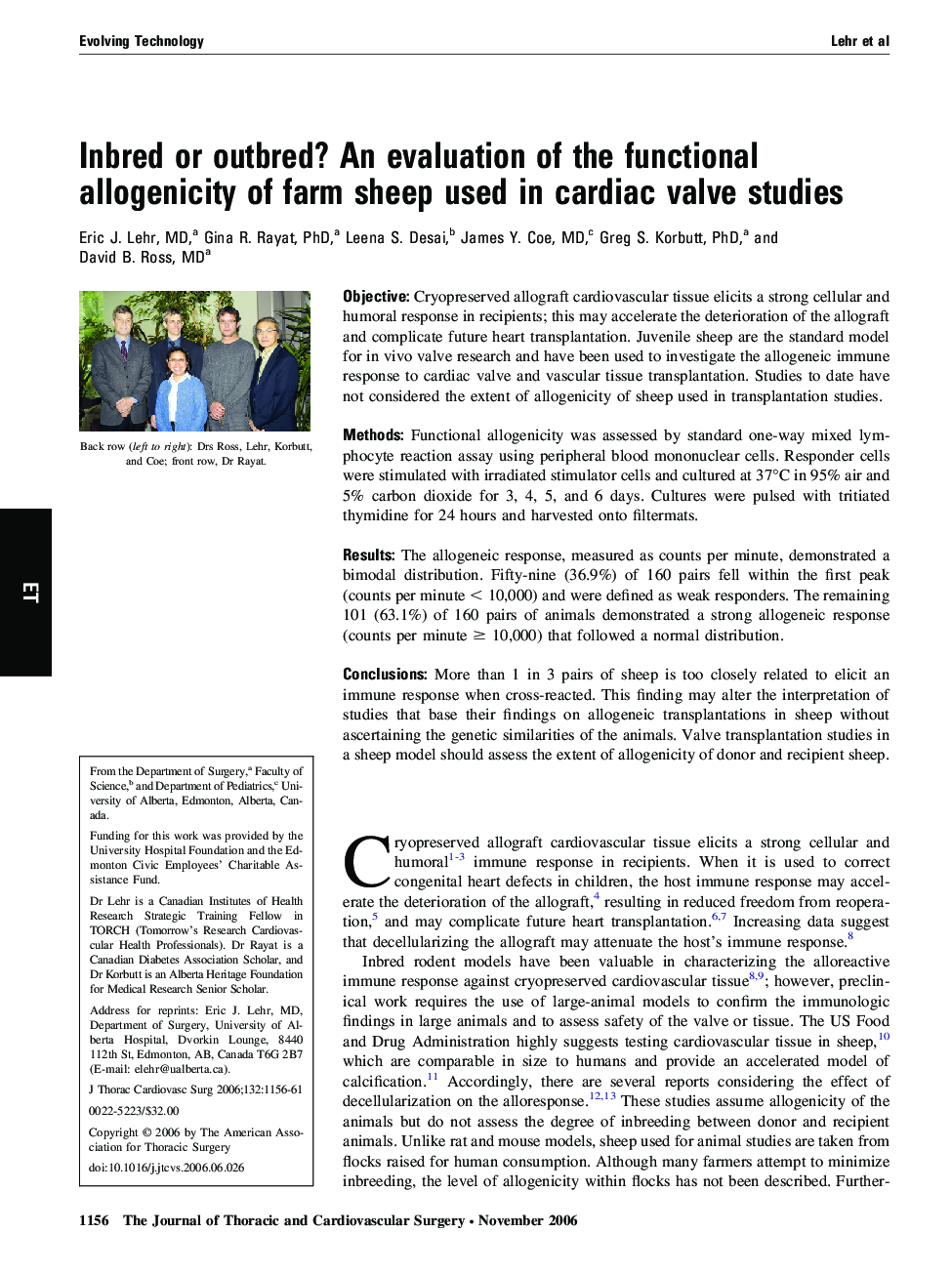| Article ID | Journal | Published Year | Pages | File Type |
|---|---|---|---|---|
| 2986451 | The Journal of Thoracic and Cardiovascular Surgery | 2006 | 6 Pages |
ObjectiveCryopreserved allograft cardiovascular tissue elicits a strong cellular and humoral response in recipients; this may accelerate the deterioration of the allograft and complicate future heart transplantation. Juvenile sheep are the standard model for in vivo valve research and have been used to investigate the allogeneic immune response to cardiac valve and vascular tissue transplantation. Studies to date have not considered the extent of allogenicity of sheep used in transplantation studies.MethodsFunctional allogenicity was assessed by standard one-way mixed lymphocyte reaction assay using peripheral blood mononuclear cells. Responder cells were stimulated with irradiated stimulator cells and cultured at 37°C in 95% air and 5% carbon dioxide for 3, 4, 5, and 6 days. Cultures were pulsed with tritiated thymidine for 24 hours and harvested onto filtermats.ResultsThe allogeneic response, measured as counts per minute, demonstrated a bimodal distribution. Fifty-nine (36.9%) of 160 pairs fell within the first peak (counts per minute < 10,000) and were defined as weak responders. The remaining 101 (63.1%) of 160 pairs of animals demonstrated a strong allogeneic response (counts per minute ≥ 10,000) that followed a normal distribution.ConclusionsMore than 1 in 3 pairs of sheep is too closely related to elicit an immune response when cross-reacted. This finding may alter the interpretation of studies that base their findings on allogeneic transplantations in sheep without ascertaining the genetic similarities of the animals. Valve transplantation studies in a sheep model should assess the extent of allogenicity of donor and recipient sheep.
